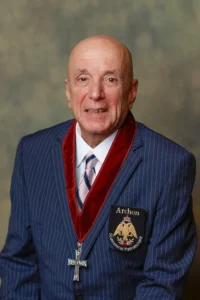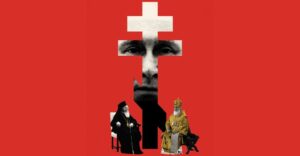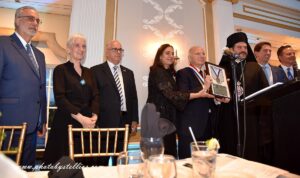
Europe and Eurasia
Turkey?
Turkey is a constitutional republic with a multiparty parliamentary system and a president with limited powers elected by the single-chamber parliament, the Turkish Grand National Assembly. In the 2002 parliamentary elections, the Justice and Development Party (AKP) won the majority of seats and formed a one-party government. In March 2003, AKP Chairman Recep Tayyip Erdogan was named Prime Minister. The Government generally respected the human rights of its citizens. While there were significant improvements in a number of areas, serious problems remained. The Government continued to restrict religious freedom and to punish some forms of non-violent expression by the media and private citizens. The Government at times restricted the rights of assembly and association and limited the activities of some political parties and leaders. Human rights organizations continued to report widespread incidents of police torture and ill-treatment. In order to meet the Copenhagen Criteria for EU accession, the Government adopted extensive human rights-related legal reforms designed to crack down on torture and “honor killings” (the killing by family members of women suspected of behavior that brings “shame” to them in the community) and to expand freedom of religion and association. However, it is too early to assess what impact these reforms will have on actual government practices. The Constitution provides for an independent judiciary; however, the judiciary was sometimes subject to outside influences.
The United States focused on a broad range of human rights issues, including police and judicial practices, religious freedom; freedom of expression, government ethics, trafficking in persons (TIP) and the right of return for internally displaced persons. United States officials routinely meet with representatives of various political, religious, social, cultural and ethnic groups to discuss human rights conditions and relations between these groups and the Turkish State. United States officials also meet regularly with members of the bureaucracy, legislature, executive branch and judiciary to encourage broad reforms, including reforms needed to meet EU accession criteria. In February 2004, Secretary Powell sent a letter to Foreign Minister Gul discussing the Turkish Government’s anti-torture efforts and other human rights-related reforms. The U.S. Ambassador discussed human rights issues in meetings with Minister Gul and the Ministers of Interior, Justice and Education.
The U.S. Embassy used the U.S. presidential election as an opportunity to engage many different audiences on the U.S. electoral system. Election programming began in early October with an address to university students, academics, nongovernmental organizations (NGOs) and local government officials by an American speaker with expertise in the electoral system, polling in election campaigns and political parties. The U.S. Embassy organized an Election Watch program that took place over 15 hours in two venues. The program at the Turkish-American Association was open to the public and included a panel discussion, screening of videotapes of the presidential debates, live election coverage and a press conference held by the Ambassador. The U.S. Embassy also held an Election Watch at the Ambassador’s residence, which attracted approximately 300 government officials, politicians, editors and other high-level contacts. The program highlighted the U.S. presidential election process, with special emphasis on the role of campaign polling and political parties. On a municipal level, a U.S. government grant to the National Democratic Institute will help train municipal officials in recent decentralization legislation.
The International Visitors Program continues to provide opportunities for professionals in all fields to be introduced to their American counterparts and to the United States in general. Participants in the 2004 program joined a number of projects related to democracy and human rights: four women parliamentarians participated in a project on “Women in Politics;” an official of the Ankara municipality participated in a Civic Education multi-regional project; and mayors, journalists, parliamentarians and business leaders joined projects related to local government, investigative journalism and the U.S. presidential election.
The United States has emphasized the importance of prosecuting, convicting and sentencing to appropriate jail terms police who commit torture. In separate decisions in March and September, an Ankara court convicted five police officers in the Birtan Altinbas death-in-detention case dating from 1991 and sentenced them each to four years and five months in prison. The court acquitted five co-defendants. In November, the High Court of Appeals overturned the verdict on the grounds that the sentences were too lenient, sending the case back to the lower court. With the help of a U.S. grant, the Minneapolis-based Center for Victims of Torture, along with its Turkish NGO partners, held its New Tactics in Human Rights International Symposium in Ankara in late September.
An Embassy official who is a former defense attorney spoke on several occasions to members of the Turkish National Police. The official discussed concepts such as “due process of law” and “chain of custody” under the U.S. Constitution. The Institute for the Study and Development of Legal Systems (ISDLS) was awarded a continuation grant to address specific measures to improve the handling of freedom of expression, police conduct and trial alternatives in the criminal justice process. An ISDLS-U.S. delegation traveled to Turkey in September, and a Turkish delegation examining alternatives to criminal trial will travel to the U.S. in March 2005. Working with the U.S. Department of Justice’s Office of Overseas Prosecutorial Development, Assistance and Training, the United States will collaborate with the Turkish Ministry of Justice to organize workshops in two cities in March 2005 on prosecution of police misconduct cases.
In compliance with the Leahy Amendment, the United States worked closely with the Turkish Ministry of Defense to vet military personnel for U.S. training. Under a United States-Government of Turkey memorandum of intent for anti-terrorist training for law enforcement officials, the United States provides training while the Turkish Government screens training candidates for human rights violations. To date, the United States continues to provide assistance for course offerings for Turkish law enforcement authorities.
The United States enhanced its collaboration with the NGO community through a grant to Kent State University and its NGO partner in Turkey on “Women’s Leadership,” a program that features a series of leadership conferences involving participants from women’s associations in Turkey’s conservative southeastern region. Another grant includes exchanges of American and Turkish high school students and is focused on development of student government and high school newspapers, which help instill democratic principles among young people. Such projects support U.S. goals to promote respect for human rights and to encourage democratic practices, especially among youth and non-elite communities.
The United States has also stressed the need to allow free religious expression for all faiths, including all Protestants, Jehovah’s Witnesses and Baha’i, who have no legal standing in Turkey. The United States at the highest levels continues to urge the Turkish Government to reach agreement with the Ecumenical Patriarchate on the re-opening of the Halki seminary on the island of Heybeli, acknowledge the ecumenical nature of the Patriarchate and ensure the right of non-citizens to serve as clergy. On a regular basis, U.S. officials continue to engage Turkish Government officials in a dialogue on religious freedom. In December, the United States supported the visit to Turkey of the Archons of the Ecumenical Patriarchate, a U.S.-based group of Greek Orthodox laymen. The Ambassador accompanied Archon representatives to a meeting with the Turkish Foreign Minister to discuss Halki and other issues relating to the Ecumenical Patriarchate. President Bush met with Muslim and minority religious community leaders in Istanbul during the North Atlantic Treaty Organization Summit in June. President Bush also met with President Sezer and discussed the importance of religious diversity and maintaining a tradition of religious freedom.
In June, Secretary Powell and Foreign Minister Gul presided over a signing ceremony that launched the first shelter for victims of TIP in the country. The Municipality of Istanbul and a local NGO located a temporary rental facility, which is currently being renovated, until more permanent facilities can be secured. Under terms of the agreement, the Istanbul Municipality committed to renting the property and turning it over, cost-free. The United States has also given a grant to the International Organization for Migration (IOM) to implement a TIP program. Its main objective is to assist Turkish authorities in setting up a comprehensive protection mechanism for TIP victims and enhance the country’s capacity to combat TIP. Elements of the program include disseminating anti-TIP materials, conducting an information campaign, training law enforcement and judicial officers and establishing a screening and referral process for victims of trafficking.
Released on March 28, 2005
Supporting Human Rights and Democracy: The U.S. Record 2004 – 2005
Released by the Bureau of Democracy, Human Rights and Labor







